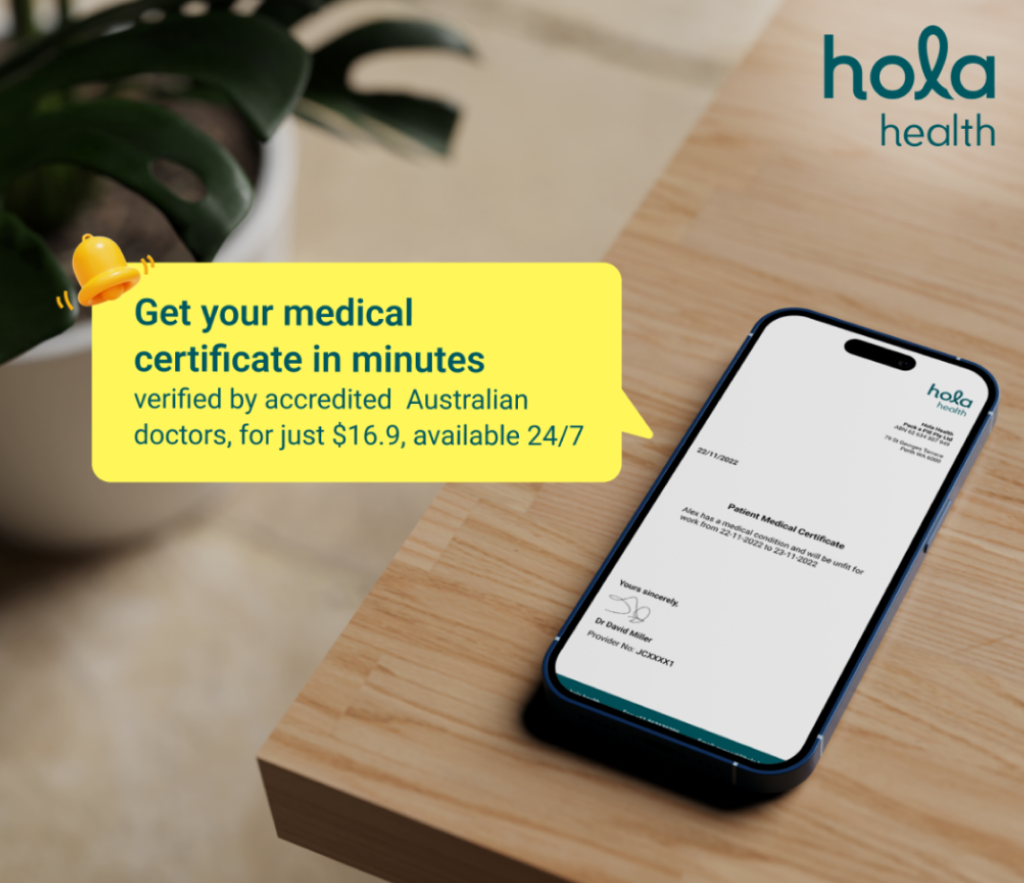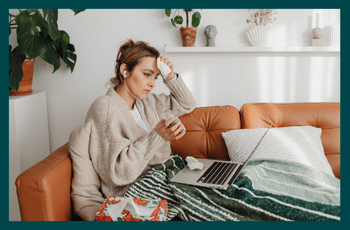- Home
- /
- Health Conditions
- /
- Boils
Boils Treatment
Consult an online doctor from the comfort of your home regarding boils from anywhere in Australia, 24/7.
About boils

Medically reviewed by Dr. Ammar AL-ANI, MBChB, CCBST, AMC
When to consult a doctor for boils?
You should consult a doctor for boils if:
- Large or very painful: If it’s not improving or causing significant discomfort.
- Multiple boils develop: If you have more than one boil at a time, it could indicate a recurring infection.
- The boil doesn’t drain on its own: If the boil doesn’t burst or drain after several days of warm compresses, medical intervention might be needed.
- Signs of spreading infection: If you notice redness, warmth, or swelling extending beyond the boil, or if you develop a fever, this could signal a more serious infection.
- The boil is in a sensitive area: Boils on the face, spine, or genital areas may need professional care due to the risk of complications.
- If you have a weakened immune system: If you have conditions like diabetes or HIV, or are on immunosuppressant medications, it’s important to get medical advice sooner.
What causes boils?
Boils are primarily caused by a bacterial infection, most commonly by Staphylococcus aureus, a type of bacteria that naturally lives on the skin and in the nose. When the bacteria enter a hair follicle or sweat gland through a cut or break in the skin, they can cause an infection that leads to the formation of a boil.
Several factors can increase the risk of developing boils, including:
- Poor hygiene: Not washing regularly can increase the likelihood of bacteria spreading.
- Weakened immune system: Conditions like diabetes, HIV, or medications that suppress the immune system can make the body more susceptible to infections.
- Skin irritation or injury: Frequent friction, sweating, or scratching can create openings for bacteria.
- Existing skin conditions: Conditions like acne or eczema can increase the risk.
- Contact with infected individuals: Boils are contagious, so skin-to-skin contact can spread bacteria.
What are the symptoms of boils?
The symptoms of a boil typically include:
- Red, swollen bump: The area around the boil becomes red and inflamed. The bump starts as a small, tender, and hard lump.
- Pain or tenderness: The area around the boil is usually painful to the touch, especially as it grows.
- Pus-filled centre: As the infection progresses, the boil may develop a white or yellow centre filled with pus.
- Warmth: The skin around the boil may feel warm to the touch due to the infection.
- Fever: In some cases, a boil may cause fever, indicating the infection may be spreading or more severe.
- Drainage: Once the boil bursts or is drained, you may notice thick, yellow or green pus draining from the bump.
- Multiple boils: Sometimes, a cluster of boils (called a carbuncle) may form, leading to a more widespread infection.
What are the risk factors of boils?
Several factors can increase the risk of developing boils, including:
- Poor hygiene: Not washing regularly or having unclean skin can allow bacteria, like Staphylococcus aureus, to build up and cause infections.
- Weakened immune system: Conditions such as diabetes, HIV, or cancer treatments (like chemotherapy) that suppress the immune system can make it harder for the body to fight off infections.
- Existing skin conditions: Skin conditions like acne, eczema, or dermatitis can increase the likelihood of developing boils because they affect the skin’s barrier.
- Close contact with infected individuals: Boils are contagious, so close skin-to-skin contact or sharing personal items (like towels or razors) with someone who has a boil can spread the bacteria.
- Ingrown hairs: When hair follicles become blocked or damaged, it can lead to the formation of boils.
- Excessive sweating: Sweating, especially in warm or humid conditions, can increase the risk of bacteria entering the skin.
- Obesity: Being overweight can increase the likelihood of developing boils, as it can create friction and sweating in areas like the armpits or groin.
- Poor nutrition: A diet lacking essential nutrients may weaken the immune system, making it easier for infections to occur.
What are some home remedies for boils?
If you have a boil, some home remedies may help alleviate discomfort and promote healing:
- Warm compress: Apply a warm, moist cloth to the affected area for 20-30 minutes, several times a day. The heat helps increase blood flow and encourages the boil to drain naturally.
- Tea tree oil: Known for its antibacterial properties, tea tree oil may help reduce infection. Dilute a few drops with a carrier oil (like coconut oil) and apply it to the boil with a cotton ball.
- Epsom salt bath: Adding Epsom salt to a warm bath may help reduce swelling and draw out the infection. Soak the affected area for 15-20 minutes.
- Turmeric: Turmeric has anti-inflammatory and antibacterial properties. You can apply a paste made from turmeric powder and water to the boil or take it as a supplement. Consult a doctor before use.
- Aloe vera: Aloe vera gel has soothing and anti-inflammatory properties. Apply fresh aloe vera gel to the boil to reduce swelling and pain.
Are boils contagious?
Yes, boils are contagious. They are caused by bacterial infections, most commonly Staphylococcus aureus, and the bacteria can spread from one person to another through direct contact with the infected area or by sharing personal items like towels, razors, or bedding.
To reduce the risk of spreading a boil, it’s important to:
- Avoid touching the boil: If you need to touch it, wash your hands thoroughly afterwards.
- Keep the boil covered: Use a clean bandage to cover the boil and prevent the bacteria from spreading.
- Wash linens and clothing: Regularly wash towels, sheets, and clothes that may have meet the infected area.
- Don’t share personal items: Avoid sharing items like towels, razors, or washcloths.
- Practise good hygiene: Regularly wash your hands and shower to reduce the spread of bacteria.
Who gets boils?
Boils can affect anyone, but certain groups of people are at a higher risk due to various factors:
- Weak immunity: Those with conditions like diabetes, HIV, or cancer, or those on medications that suppress the immune system, are more susceptible to boils.
- Poor hygiene: Not washing regularly or having dirty skin can increase the likelihood of bacterial infections that lead to boils.
- Existing skin conditions: Conditions like acne, eczema, or dermatitis can make it easier for bacteria to infect hair follicles and sweat glands.
- People who sweat: Excessive sweating, especially in hot and humid environments, can create an ideal environment for bacteria to thrive.
- Overweight or obese: Being overweight can cause increased friction and sweating in areas like the armpits, thighs, and groin, raising the risk of boils.
- Individuals who shave or wax: Shaving or waxing can cause tiny cuts or irritation to the skin, increasing the risk of bacterial infections and boils.
- Children and infants: While anyone can get a boil, children and infants are particularly prone to them due to their developing immune systems.
- People who have had boils before: Once you’ve had a boil, you are more likely to develop them again, especially if you have ongoing risk factors.
How can boils be prevented?
Preventing boils involves maintaining good hygiene and minimising conditions that can lead to bacterial infections. Here are some tips to help reduce the risk:
- Practise good hygiene
- Avoid sharing personal items
- Keep skin clean and dry
- Wear loose-fitting clothing
- Avoid skin injuries especially during waxing etc.
- Treat skin conditions
- Boost your immune system
- Use antibacterial products
- Manage underlying health issues
How can I get an online script through Hola Health?
Getting an online script through Hola Health is quick and simple. Here’s how it works:
- Select ‘Request a Prescription’ on the Hola Health website.
- Fill in your details, including your Medicare information.
- Complete the payment.
- An AHPRA-registered telehealth doctor consult over a video call if needed.
- If approved, you’ll receive your online prescription via SMS within minutes, ready to use at your local pharmacy or for home delivery.
Can I speak to a qualified doctor online for boils?
Yes, you can speak to a qualified online doctor for boils through Hola Health. An AHPRA-registered telehealth doctor can assess your symptoms, recommend the right treatment, and, if necessary, issue a medical certificate, or provide referrals for pathology tests or specialist care.
It’s a fast, convenient way to manage skin infections like boils from home, with 24/7 access.
What kind of referrals can I get online?
if you’re dealing with boils, an online doctor through Hola Health can provide several types of referrals depending on your symptoms and severity:
- Pathology referrals
- Radiology referrals
- Specialist referrals
Can I speak to a night doctor from home?
Yes, with Hola Health, you can speak to a qualified night doctor from the comfort of your home. Their 24/7 telehealth service means you can book an online consultation anytime, including after hours, weekends, and public holidays.
Whether you need medical advice, a prescription, a medical certificate, or a referral, an AHPRA-registered doctor is available to help you quickly and conveniently.
How can I get a medical certificate online?
How can we help?
Easily manage boils treatment online in Australia with Hola Health’s 24/7 telehealth service, no clinic visit needed.
- Telehealth doctors 24/7: Consult an AHPRA-accredited telehealth health practitioner anytime, anywhere.
- Medical certificates online: Need a medical certificate online for work or school? Request one hassle-free with Hola Health.
- Valid online scripts: Request instant scripts online within minutes, 24 hours a day and 7 days a week.
- Online doctor referrals: Access quick referrals to specialists, pathology tests, and radiology tests
- Bulk-billed mental health care plans: Consult an online doctor trained in mental health and get a valid online mental health care plan.
- Chemist delivery: Order medicines and get them delivered to your doorstep, at your convenience.
Talk to a doctor today
Instantly connect to a registered practitioner within 15 minutes from anywhere in Australia, 24/7 for:
- General consults
- New & repeat scripts
- Referrals
- Medical certificates
- Mental health plans

Access telehealth services
Doctors Brisbane | Doctors Melbourne | Doctors Perth | Doctors Sydney | Doctors near me | Doctors Canberra | Doctors Adelaide | Doctors Darwin | Doctors Hobart
After hours Doctor Brisbane | After hours Doctor Melbourne | After hours Doctor Perth | After hours Doctor Sydney | After hours Doctor Hobart | After hours Doctor Gold Coast | After hours Doctor Canberra | After hours Doctor Adelaide | After hours Doctor Darwin | After hours GP | After hours doctor
Medical certificate | Medical certificate online for work | Medical certificate for school | Medical certificate for Uni | Medical certificate for stress | Carer’s leave certificate | Medical certificate NSW | Medical certificate QLD | Medical certificate VIC | Medical certificate WA | Doctors certificate online | Multi-day Certificate | Sick certificate online | GP medical certificate | Doctors note | Telehealth medical certificate | 2-day medical certificate | Medical certificate for sick leave
Instant scripts | eScript | Online prescriptions | Online prescriptions Sydney | Online prescriptions Melbourne | Online prescriptions Perth | Online prescriptions Brisbane | Online Rx prescription
Online referrals | Blood test referral | X-Ray referral | Pathology referral | Radiology referral | Specialist referral | Gynaecologist referral | Audiology referral | Ophthalmologist referral | Paediatrician referral | Ent specialist referral | Endocrinologist referral | Dermatologist referral | Urologist referral | Gastroenterologist referral
Telehealth appointment | Online Doctor | Bulk Billing Doctors | Doctors on-demand | Instant consult | Covid antiviral | Dial a Doctor | Online GP | Doctor appointment | Bulk-billing doctors | Telehealth pricing | GP online chat | Australian doctor | Web doctor | Home doctor | 24-hour doctor















